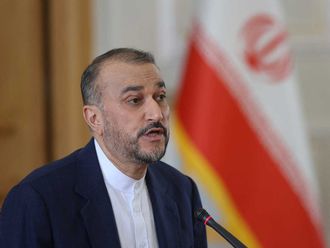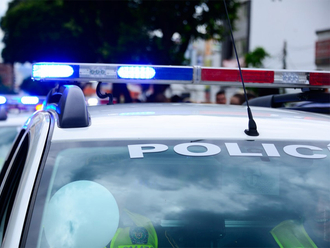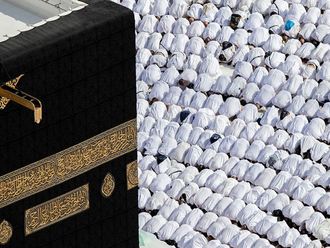Ramallah: Calls by Israeli government ministers for the death penalty for the young Palestinian who stabbed to death three members of a Jewish family in Halamish are being seen as justification for the belief that the occupying forces are carrying out routine extrajudicial executions in the West Bank.
Capital punishment has never before been ordered by an occupation military court, although security forces have been blamed for systematically executing suspects in public.
Omar Al Abed, 19, burst into the Salomon family home in Halamish on Friday and fatally stabbed Yosef Salomon, 70, his daughter Chaya Salomon, 46, and son Elad Salomon, 36. Abed was shot by an off-duty Israeli soldier and discharged from hospital into custody on Saturday.
Israeli Defence Minister Avigdor Liberman, Justice Minister Ayelet Shaked and Education Minister Naftali Bennett yesterday urged Israeli military courts to seek the death penalty for Abed. Intelligence Minister Israel Katz had earlier said he would push for the death penalty. Israel’s Sephardic Chief Rabbi Yitzhak Yosef has said it was “a shame” that Abed was not killed during the attack.
Israeli human rights group B’Tselem said extrajudicial street killings were a direct consequence of these sort of inflammatory remarks by Israeli leaders.
Ayman Odeh, leader of the Joint List of mainly Arab parties in Israel’s parliament, the Knesset, said on Twitter: “Israel has turned in recent months into a place in which executions are carried out in public with the encouragement of cheering mobs.”
Several Palestinian and Israeli observers and human rights groups point to the fact that nobody appeared to regard street executions as unusual, suggesting that extrajudicial killings of suspected attackers have now become routine.
The Knesset has repeatedly rejected proposed legislation that would apply the death penalty to Palestinians.
Friday’s attack on the Salomon family came just hours after three Palestinians were killed during a wave of clashes between Israeli forces and Palestinians protesting about new Israeli security measures at Al Haram Al Sharif – home of Al Aqsa Mosque and Dome of the Rock – in occupied East Jerusalem.
Al Waqf Department, which runs Al Haram Al Sharif on behalf of the Jordanian Government, in collaboration with the Palestinian Ministry of Awqaf and Islamic Affairs, ordered Jerusalem’s mosques to shut their doors on Friday so preachers, leaders of prayers, and worshippers could attend sermons around the holy site.
Israel installed metal detectors at the entrances to Al Haram Al Sharif after a shoot-out near the compound on Friday, July 14, in which three Palestinians from the 1948 areas and two Israeli police officers were killed.
Israel captured the eastern part of Jerusalem in the 1967 Mideast Six-Day War and annexed it in a move that has never been recognised by the international community. Since the Israeli occupation of the holy city, Al Haram Al Sharif has been administered by the Jordanian Waqf Department. A decades-old status quo agreement allows Jews to visit Al Haram Al Sharif but bans them from praying there.












